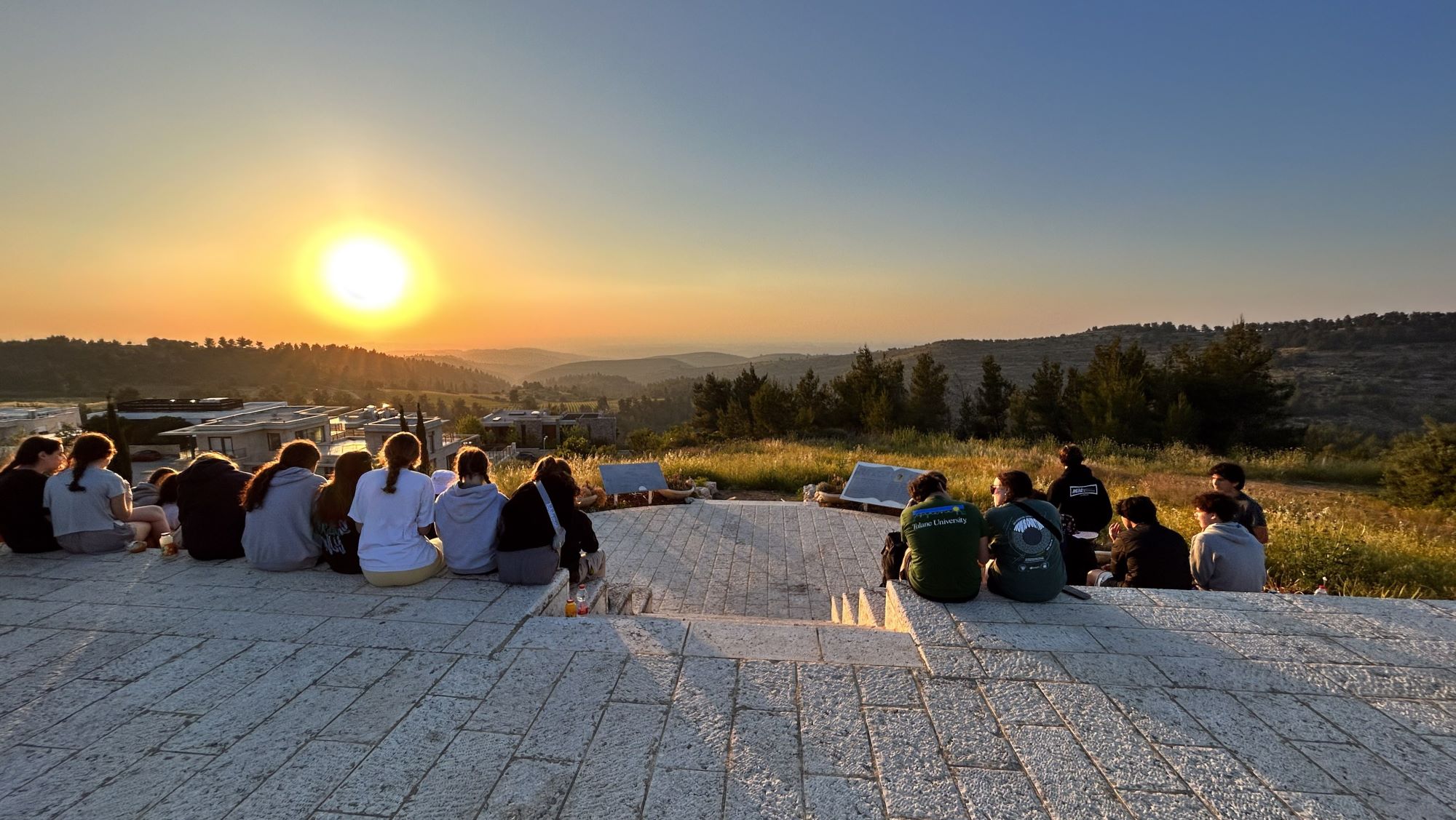Pesach This Year

A Difficult Time to Celebrate
The Jewish calendar is jam-packed. Just when you feel you have recovered from a holiday or fast day, the next one is soon approaching. The calendar is one of the reasons Judaism is such an enriching and all-consuming practice. Our Jewish calendar means we always have something to look forward to, celebrate or commemorate and of course, always plenty to eat.
This year however, the Jewish calendar comes with many questions. How can we celebrate Purim while many families around the country are sitting shiva? How can we light Chanukah candles when the hostages themselves have no light? Of course, with Yom Ha’atzmaut soon approaching this question is more heightened than ever.
In the lead up to Pesach, Jews all over the world are faced with the same dilemma. How can we celebrate freedom and redemption when we are so far from it? How can we thank God for His many miracles when we haven’t seen any in our own time of crisis?
To understand how we can relate to Pesach this year, it is necessary to take a little dive into what Pesach is all about.
What is it all about?
The holiday of Passover, or Pesach, is not only one of the most pivotal points of the Jewish calendar, but also one of the most fascinating. Other Jewish festivals commemorate the respective event through prayer, scripture reading, and lavish meals. Pesach is different. Pesach has no unique prayer like Neila on Yom Kippur or key scripture reading like Megillah on Purim. And of course, the food is certainly not anything special. What makes Pesach unique is its experiential nature. Rabban Gamliel famously stated: “In every generation, each person is obligated to regard himself as if he personally came out of Egypt.” (Mishnah Psachim, 10:05).
The way this is achieved is not by simply restating the events of Exodus, but by various sensory experiences that help us feel that we were once slaves to Pharaoh, too. Most famously, we eat matzah, the same bread the Jews ate as they were leaving Egypt, for they had no time to let the dough rise. We dip our ‘karpas’ in salt water whose taste reminds us of the tears of the Jewish slaves. We eat the ‘Hillel sandwich’ to mimic exactly how the Pascal sacrifice used to be eaten in the Temple. We eat bitter herbs to remind us of the bitterness of slavery, which we dip in ‘haroset’ to symbolize the cement used by the slaves when they were forced to build for the Egyptians. Slavery is very hard for many to imagine in a modern and free world, but the experiential elements of the seder night help give us a little taste of this reality and try to transport us back 3,000 years ago.
What Makes This Year Different than Any Other?
This year, we are compelled to look at Pesach differently. The experiential aspects of Pesach serve to help us understand something that is so foreign to our lives. This year we need to flip that on its head. The seder night also has many sensory experiences regarding freedom. We drink four glasses of wine and lean like kings when we do so. We dress in beautiful clothes, and it is customary to wear something new to the seder night. Usually, these more joyous aspects come to us easily, while the bitterness is something we have to try hard to feel or understand.
Unfortunately, this year the bitterness feels close to home. Every Jew around the world has been affected in some way or another by the events of October 7th and Am Yisrael are experiencing many ‘salty tears’.
However, this is not a reason to not celebrate Pesach this year. In fact, quite the opposite. If we let go of our traditions, beliefs, and the practices that unite Jews around the world, then we have lost the war. This is what the enemy wants, but we need to prove (to ourselves as much as to others) that we are strong, alive, and not going anywhere.
Pesach this year is not irrelevant, we simply need to shift the focus. To remember, that there are many experiential symbols of freedom at the seder, too, which we can use as an important reminder. A reminder that we need to work harder to bring the hostages home. A reminder that this country and our people are worth fighting for. A reminder that one day, we will laugh again, feel safe again, and that redemption can come.
Hadassah Solomon teaches world history at AMHSI.
